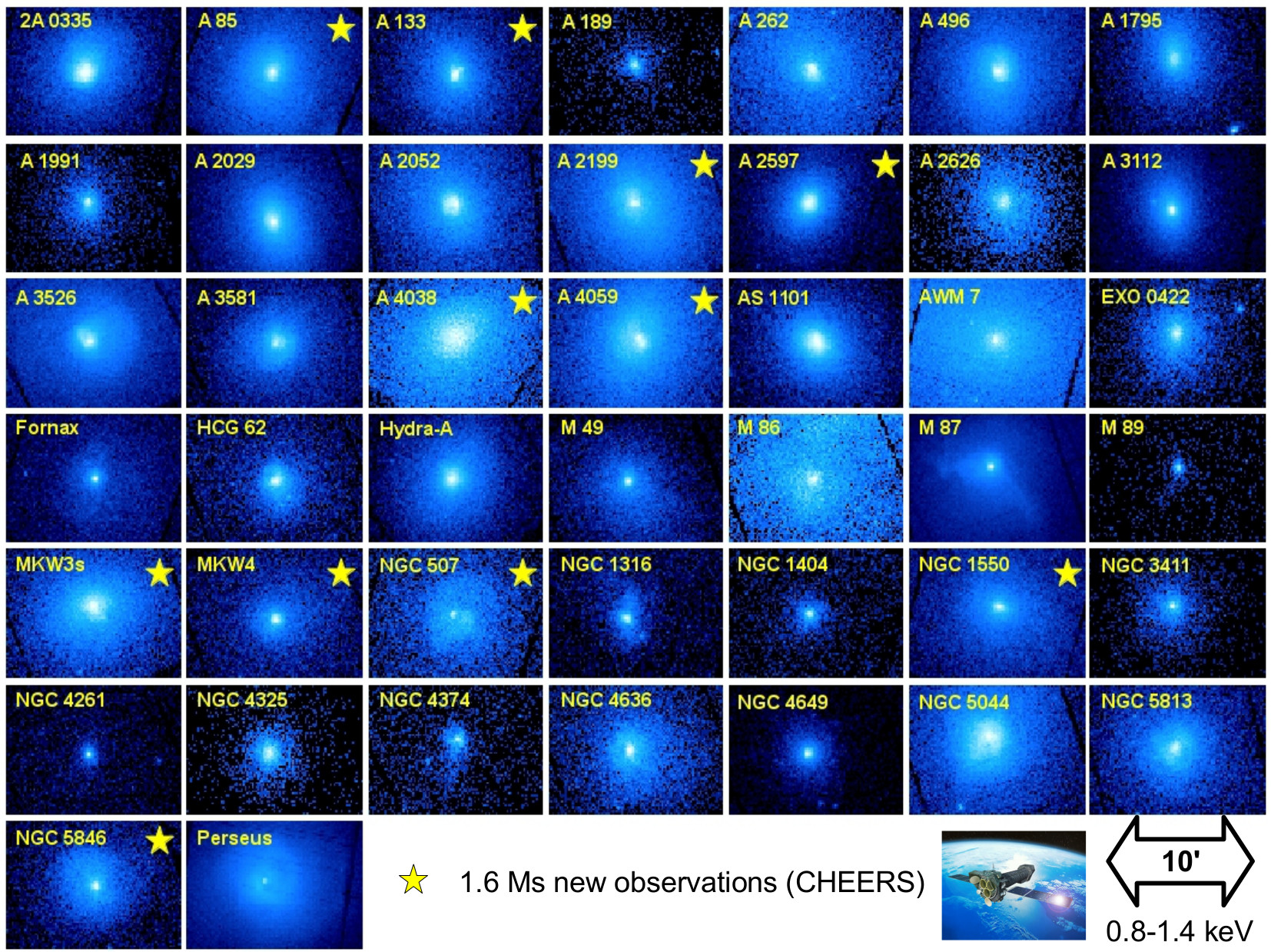The CHEERS Project
Where and when did chemical elements like oxygen and iron form in the Universe? And how do they get mixed into interstellar matter and form stars and planets? These are the driving questions behind the CHEERS project, the CHEmical Enrichment RGS Sample.
One of the best ways to study chemical enrichment on the scale of the universe is to look at the X-ray emission of the gas in clusters of galaxies. In their X-ray spectra we can detect features of nitrogen, oxygen, neon, magnesium, silicon, sulphur, argon, calcium, chromium, manganese, iron and nickel. These elements are the most abundant in the universe apart from hydrogen and helium. We can not only detect these elements, but we can also measure their abundance.
The CHEERS project started with the acceptance of a very large observing program with ESA's X-ray observatory XMM-Newton. We obtained 1.6 million seconds of exposure time (about 19 days) on a total of 11 clusters of galaxies. Together with data from the XMM-Newton archive we compiled a sample of 44 clusters with good quality RGS spectra.
Since we obtained the data, we have studied the 44 clusters in many different aspects. The list of published scientific papers can be found here. The papers do not only report results on the chemical enrichment, but also discuss turbulence in the hot gas and its thermal properties.

The image above shows all the X-ray images of the clusters in the CHEERS sample. (Image courtesy: Ciro Pinto).
The work has been done in an international collaboration. The members of the collaboration are listed on the right.
Collaboration
- Jelle de Plaa (PI), Jelle Kaastra, Francois Mernier, Junjie Mao
SRON Netherlands Institute for Space Research, The Netherlands
Leiden University, The Netherlands - Ciro Pinto, Andy Fabian
Institute of Astronomy, Cambridge, UK - Norbert Werner
Eötvös Loránd University, Budapest, Hungary
Masaryk University, Brno, Czech Republic - Thomas Reiprich, Yu-Ying Zhang
Argelander-institut für Astronomie, Bonn, Germany - Lorenzo Lovisari, Gerrit Schellenberger
Harvard Smithsonian CfA, USA
Argelander-institut für Astronomie, Bonn, Germany - Jeremy Sanders, Hans Böhringer, Florian Hofmann
MPE, Germany - Alexis Finoguenov, Jussi Ahoranta
University of Helsinki, Finland - Onno Pols
Radboud University, Nijmegen, The Netherlands - Aurora Simionescu
ISAS, JAXA, Japan - Jacco Vink
University of Amsterdam, The Netherlands
